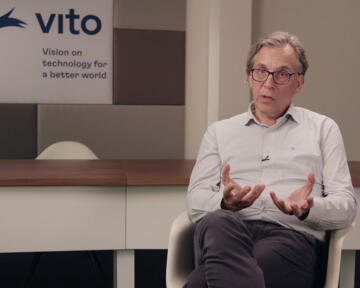1. Build on a Strong Concept
“Consumers value your efforts toward circularityCircularity describes the quantity of materials managed in a closed loop. but that’s not enough to win them over. Opt for a high-quality, affordable product or service that truly meets real demand. If at the same time you can contribute to a circular world, all the better!”
Example:
Plastic waste makes up 70% of ocean pollution. Flip-flops are the most popular footwear in the world (over 3 billion pairs sold annually) and often end up in the ocean. Nuoceans has come up with a business model that recycles old flip-flops into affordable, high-quality, and recyclable new ones. Customers can even return their used Nuoceans flip-flops to be recycled again.
2. Take Time to Shape Your Business Model
You can’t go from the concept stage to a realistic economic model overnight. Don’t rush into it and take sufficient time to refine your idea, engage with experts, explore potential investment opportunities, and incorporate feedback.”
Example:
Nuoceans started as Hadrien’s idea to protect the oceans but it took no less than 3.5 years for him and his team to completely fine-tune their business plan.
3. Attract the Right Investors
“To get your business off the ground, you often have to invest a great deal of resources in research, development and infrastructure Don’t feel like you have to rely solely on your own resources. There is a wide range of possibilities to attract external investors as long as they buy into your business plan. Many investors who specifically look for start-ups with a positive environmental impact.
Example:
To launch Nuoceans, Hadrien leveraged personal funds along with an investment grant, crowdfunding, a private sustainability-focused investor, and a bank loan.
4. Tell Your Circular Story (Online)!
“People are getting discouraged by all the negative headlines about the future of our planet so make sure your marketing focuses on the positive impact your customers can have. The sustainable purchasing decisions they make, while small, contribute to meaningfull progress. Online marketing, especially on social media, lets you reach your audience precisely, even on a modest budget.”
Example:
Following a less successful collaboration with an external agency, the Nuoceans team decided to take charge of their own marketing. Online sales are supported with very targeted social media posts sharing the high-quality and circular story of Nuoceans flip-flops. They boost posts on a shoestring budget and target a very specific audience based on location, age, interests and other criteria.
5. Don’t Stray from the Circular Path
“When times get tough, it can be very tempting to cut back on sustainability efforts But while this might save money in the short term, it risks eroding the trust of your customers and investors in the long run. Stay true to your sustainable DNA and don’t get sidetracked!
Example:
Striking a balance between sustainability and profitability was no small task for Nuoceans. Rather than opt for a cheaper but less sustainable production process, the team dedicated a lot of energy identifying the ideal price and target group for their circular flip-flops. After all, ecological and economic sustainability must go hand in hand.
Would you like to know more about how to get started in the circular economyThe circular economy is a restorative and regenerative economy. By maintaining the value of the products, materials and resources in the economy through smart product design, repurposing and/or shared use of products, it reduces the extraction of natural resources by using resources already present in the economy.? The FPS Economy tells you all about it in the Go for Circular toolbox.




